Musical Theatre
The Musical Theatre programme at the Danish National School of Performing Arts in Fredericia trains independent musical theatre performers for professional work on the musical theatre stage in Denmark and abroad. To become a musical theatre performer, you must have a passionate interest in the field and be able to sing, dance and express yourself dramatically.
SINGING, DANCING AND ACTING
Based on your personal talent, you will work on developing your technical skills in the three main subjects – singing, dancing and acting – so that you can express yourself creatively and professionally on stage and master the diverse forms of expression within the musical theatre genre.
Throughout the programme, you will become familiar with different methods of singing instruction. The initial focus is on building vocal technique skills and then implementing the techniques into a personal, artistic, theatrical expression and performing songs as the character you are playing.
Dancing is an essential part of being a musical theatre performer. Being able to sing and move at the same time for an entire performance demands special physical and respiratory requirements. The programme therefore includes daily dance classes in jazz, ballet, modern and tap, among others. You will familiarise yourself with the basic principles of the different genres and work with both rehearsing other people’s choreographies and creating your own choreographic works.
In acting classes, you will train in character work, acting methods and improvisation, among other things. You will learn how to use relevant dramatic expressions in different styles and genres and how to develop authentic characters.
In addition to the main subjects, you will have a number of minor subjects, including piano and ear training, where you will learn sight singing and work in-depth with polyrhythm, coordination, imitation and tone knowledge. You will also have a wide range of continuous support subjects, such as ensemble singing and yoga, that support the other subjects in the programme and give you tools you can use in general as a performer.
All majors – singing, dancing and acting – are brought together in various projects throughout the programme. Through the projects, you will also learn about working methods and processes in the musical theatre industry, artistic idea development and, not least, the interaction and collaboration with other performers and all the other professionals working on a musical production. Several courses culminate in public performances, so throughout the programme you will train your interaction with and understanding of the audience.
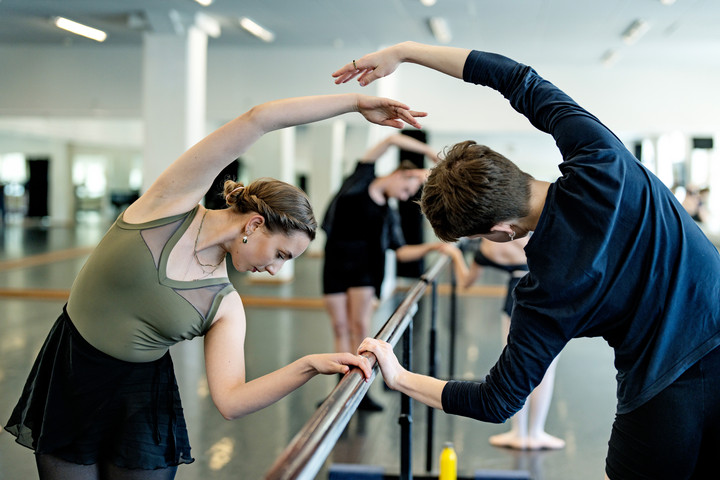
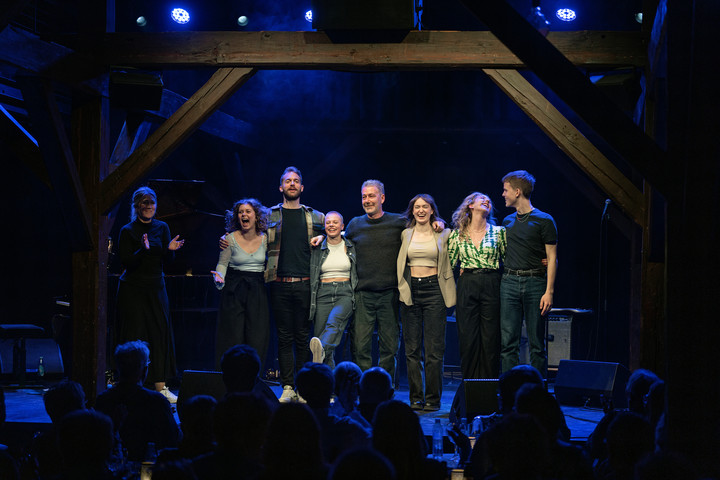
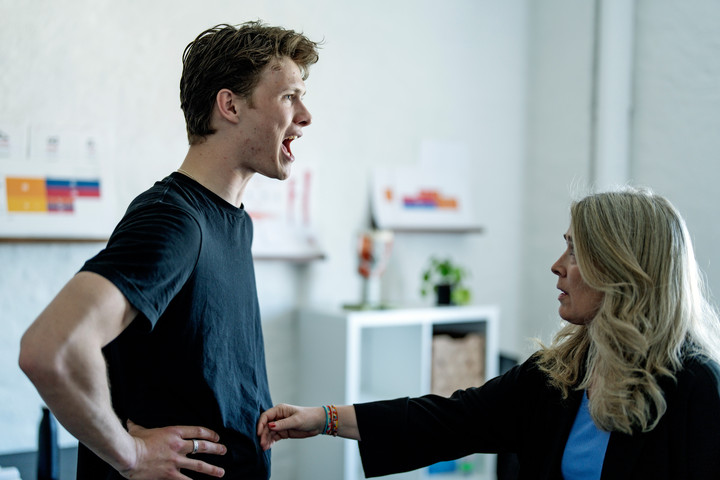
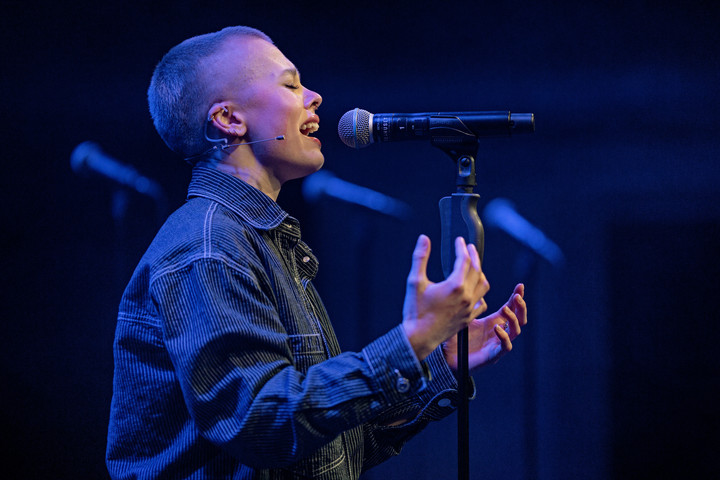
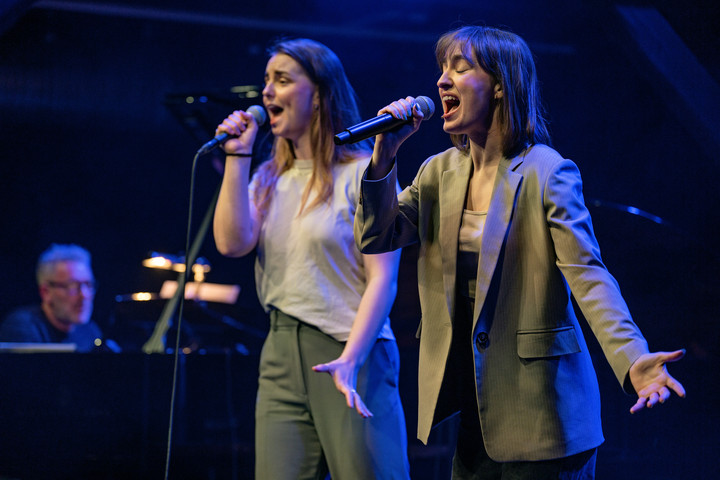
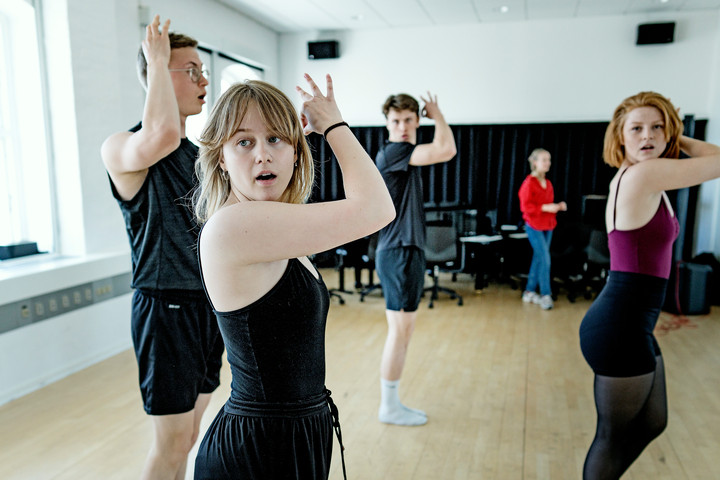
Programme STRUCTURE
Singing, dancing and acting classes are the common elements in all three years of the programme. Alongside the three majors, you have a number of minor and supporting subjects that both support and provide context and perspective to the majors. Throughout the programme there are also a number of smaller projects, which can be collective or individual. The projects focus on artistic idea generation, awareness of (co-)working methods and on developing your own artistic expression.
The first two years of the programme take place primarily at the school with various courses where you develop your skills and knowledge within the musical theatre genre. In the second year, there is a study trip abroad where you gain a greater insight into the field from an international perspective.
The third and final year of the programme includes an internship where you will take part in a professional production at a theatre or similar.
At the end of each academic year, a large-scale performance, the so-called “showcase”, is produced in which all three years of the programme participate. The first years contribute to the stage technique and execution of the performance in collaboration with a professional theatre. The second years perform as an ensemble on stage, while the third years perform as soloists and play the main characters in the show.
Throughout the programme, you will be taught entrepreneurship, which is a subject that deals with how you can apply your skills and competencies in a diverse labour market after graduation.
STUDY FORM AND STUDY ENVIRONMENT
The study environment at the Musical Academy is close and intense. With only 24 students across the three years, there is a basis for a close professional relationship with the teachers and counsellors. The Musical Theatre Programme is a full-time study programme where you attend and work all day at the school. Attendance is obligatory for all academic activities.
At times, your main subjects – singing, dancing and acting – will fill much of your schedule. Classes are usually taught as ensemble training together with your year, and there is a strong focus on individual learning in collaboration with others, but there are also a number of subjects with solo lessons, such as speech training, keyboard and solo singing. Other periods are characterised by project work or working on presentations, where you will also need to be at school in the evenings and on weekends. In this way, the programme reflects working life as a professional musical theatre performer.
CAREER AND WORKING LIFE
The programme qualifies you to work as a musical theatre performer on the Danish and international musical theatre stage.
The vast majority of musical theatre performers work freelance and project-based, and it is quite normal to be involved in 5-10 projects over the course of a year. Many are hired based on auditions, something you will also train for during the programme.
There are also musical theatre performers who develop their own projects, and some graduates teach in the field. There is generally good employment potential and the opportunity to make a living from employment in the field.
ADMISSION TO THE musical programme
8 students are admitted to the programme once a year. Note that the application deadline is typically in December of the year before the start of the course.
All students are admitted based on a series of auditions. The admissions committee assess applicants’ suitability based on set criteria. The conditions and audition criteria apply to Danish as well as international Full Degree students.
Find guidance on how to apply to the programmes and the application deadlines here.